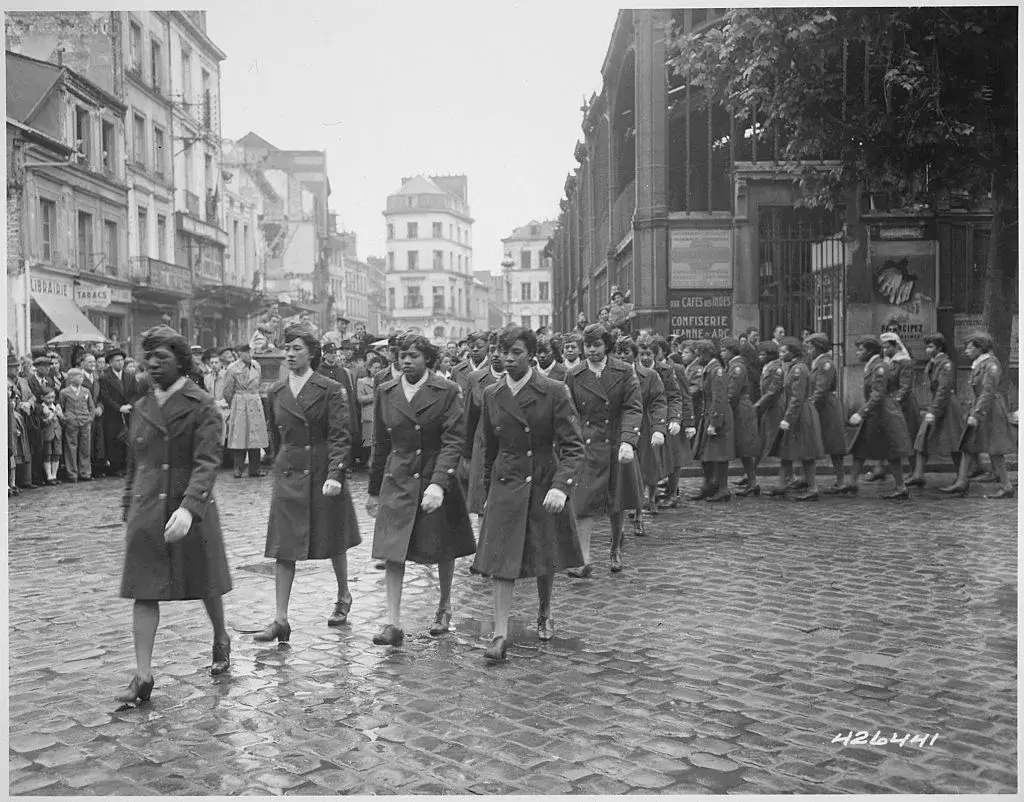 THIS WEEK, THE 6888TH CENTRAL POST DIRECTORY BATTALION -THE 6888-WAS RECOGNIZED WITH A CONGRESSIONAL GOLD MEDAL OF HONOR CELEBRATION AT ARLINGTON NATIONAL CEMETERY. The 6888th Central Post Directory Battalion was the only exclusively Black female unit sent overseas during World War II. The mission of the 6888th was to solve the mail and morale problem. Their service helped uplift the American soldiers whose only connection to their home families was through handwritten letters. They sorted through mountains of backlogged mail and were often in poor working conditions, but they did it in record time. The 6888th Central Postal Directory Battalion had 855 Black women, both enlisted and officers, and was led by Major Charity Adams. The group motto was "No mail, low morale." The battalion was organized into five companies, Headquarters, Company A, Company B, Company C, and Company D. Most of the 6888th worked as postal clerks, but others were cooks and mechanics and held other support positions, so the 6888th was a self-sufficient unit. During World War II, there was a significant shortage of soldiers who were able to manage the postal service for the U.S. Army overseas. In 1944, Mary McLeod Bethune worked to get the support of the First Lady, Eleanor Roosevelt, for "a role for Black women in the war overseas." Black newspapers, too, challenged the U.S. Army to "use Black women in meaningful Army jobs." The women who signed up went to basic training in Georgia. The 6888th left the United States on February 3, 1945, sailing on the Île de France, arriving in Glasgow, Scotland on February 12. When the 6888th settled in Birmingham, England "they saw letters stacked to the ceiling of the temporary post office" in unheated converted hangars. Some letters had been in the makeshift offices for as long as two years. Army officials believed that undelivered mail was "hurting morale." Many letters and packages had only the intended recipient's first name and a commonly used name or used nicknames. There was estimated to be a backlog of 17 million items. The 6888th devised their system to handle the backlog of mail. This included creating and maintaining a card index of names of those with the same or similar names, using military serial numbers to distinguish between them. This finally contained 7 million cards. The women of the 6888th worked in three different shifts, seven days a week, processing and delivering mail – a morale booster – to fighting troops in Europe. Each shift handled an estimated 65,000 pieces of mail. In total, the unit handled mail for over four million military and civilians and cleared backlogs in the U.K. and France. The 6888th was a segregated unit, sleeping, and eating in different locations from the White male soldiers. They were housed in a former school building, with officers quartered in houses nearby. Some women felt that the European locals treated them better than people in the United States. By October 1945, the mail in Rouen, France had been cleared, and the 6888th was sent to Paris. They marched through the city and were housed in a luxurious hotel, where they received first-class treatment. Their service helped uplift the American soldiers whose only connection to their home families was through handwritten letters. In February 1946, the unit returned to the United States, where it was disbanded at Fort Dix, New Jersey. There was no public recognition for their service UNTIL NOW.
0 Comments
Leave a Reply. |
AuthorRodney. L. Hurst, Sr. Archives
June 2024
Categories |
RODNEY L. HURST, SR. - THE STRUGGLE CONTINUES!

 RSS Feed
RSS Feed
